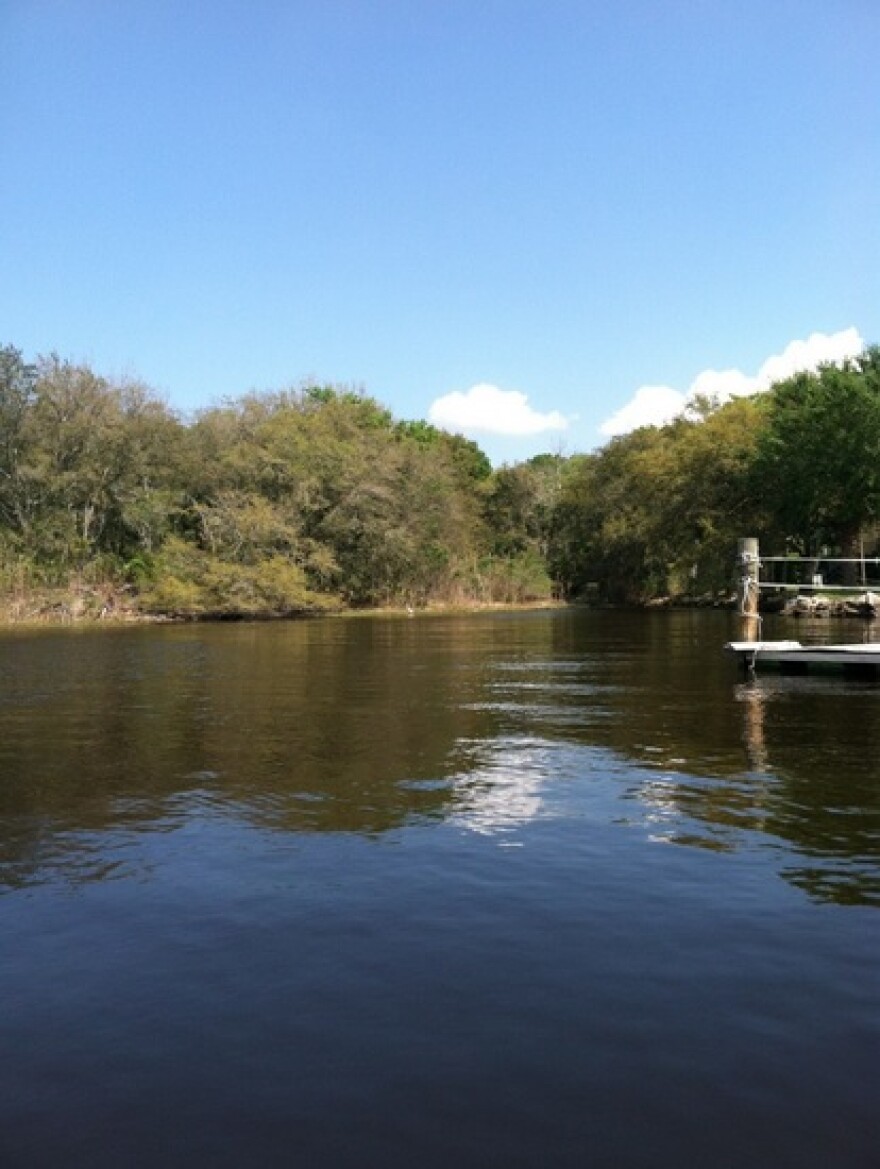Florida plans to go statewide with a water-quality program that lets polluters partially off the hook if they buy credits for extra cleanup others have already done. The credit-selling program has critics in Jacksonville, the city where it started.
A few years back, the polluted St. Johns River became the test case for the voluntary water-quality credit program. The theory, state regulators say, was to foster regional cooperation by adding an economic incentive for water cleanup.
Director of the State Division of Environmental Assessment and Restoration, Tom Frick, says credits are one tool to push polluters toward meeting their cleanup obligations.
“That allows water quality restoration to occur quicker. It also allows water quality restoration to occur more cheaply,” he says.
The city of Jacksonville was the credit buyer and private utility company JEA was the seller. Both were already required to clean the river a certain amount, but JEA had gone above and beyond its duty. Jacksonville, which can’t clean as cost-effectively, bought credits from JEA, paying for that extra work, rather than fulfill its entire obligation. Frick says the river still got the total required amount of cleaning—and it happened faster.
But Lisa Rinaman, head of the nonprofit St. Johns Riverkeeper, says the river isn’t benefiting long-term from the program.
“Can it be used in a way where it is adding additional benefit? That remains to be seen,” she says.
Rinaman says the St. Johns is still impaired, and now the city has less money to deal with pollutants like septic tank runoff.
“So instead of continuing to take these taxpayers’ dollars to focus on septic tank, they’re shifting that money away from the septic tank program and buying water quality trading credits for work that JEA has already done,” she says, adding, “It doesn’t add any net benefit to the St. Johns River.”
She says the Riverkeeper is working with the city and JEA to ensure future credit sales are used to the river’s greatest benefit.
And as DEP prepares to expand water quality credit sales statewide, Frick says lessons learned from Jacksonville will guide it. For one, he says there’s a plan to expand the program to private property owners and farmers.
The department took public comment on the trading program today in Tallahassee and will do so again next week in Palm Bay. Frick says a draft of the rules is expected within a few months, and further input will be taken on that.



